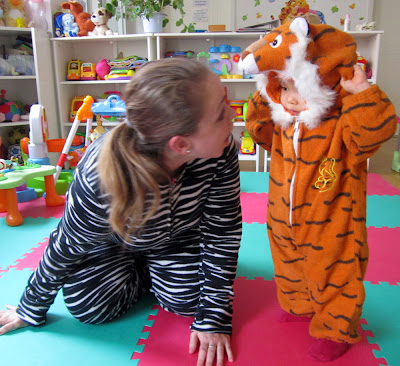Florence Koenderink has been volunteering with us on and off
for six years, and is with us now for another two and a half month stretch.
She’s at our Beijing infant care home daily, and is one of the most involved
and dedicated volunteers we’ve had. Florence works with orphanages and other
institutional childcare centers around the world. We recently sat down with her
to talk about her background and what she does for Little Flower.
What is your job at
Little Flower?
I’m a volunteer. I work with the medical team and help provide
training and recommendations to our staff when they need it.
How would you
describe a day’s work?
We start with rounds in the morning and spend the day
keeping an eye on the children with the biggest problems. I also do
physiotherapy as well as speech therapy. With regards to general care, I use my
previous experience in orphan work to offer whatever advice I can to both the
medical team and the Group Home managers on how things can be improved even more.
How did you start
working with Little Flower?
I volunteered for China Care for a year in 2007. There, I
got involved with the Little Flower hospice care project. In my first year, I
was there helping out, training staff and filling out gaps in the roster. This
has been my fifth time back since then.
How did you get into
orphan work?
It started with that year in 2007 when I came to China to
volunteer in children’s homes. I have an M.A. in Anthropology, but my entire
working life, I’ve worked in childcare, whether it was nannying or maternity
nursing.
After that first year in China, I found that I had the
ability to contribute something that really mattered. I had learned so much and
didn’t want to let that go. So I decided to do orphan work in more places. I participate
in several projects around the world helping institutional childcare centers
improve their care. I’m currently involved with two projects in India, one in
Kenya, and Little Flower in China. I’ve also been in Brazil to work on a couple
projects there.
In Kenya, I work with orphans and destitute children without
caregivers. In India, I work with a local volunteer organization to improve
conditions at a home for mentally challenged boys. I also work in a home of 300
kids, half of which are HIV positive. Connected to that is also an adoption
home for babies who are HIV negative. The aim is to visit these projects every
year, finances allowing.
Little Flower is the best I’ve seen in 6 years. I’ve been to
so many places, and I’ve never seen anything that comes close to this kind of
standard.
What challenges do
you face in your daily work?
The biggest day-to-day challenge would be just finding the
time to do everything that needs to be done. There are so many things to keep
on top of in the limited number of hours in a day—physiotherapy with certain kids, speech therapy, and several babies that
need to be regularly monitored and checked. And all of that is outside the
situations that just pop up every day. Often, we’ll get specifically
charged with babies with complex problems that no one else can seem figure out.
So that’s a challenge.
What’s the most
rewarding part of your job?
Seeing people “get it.” As an example, in 2007, I introduced
the method of warming up hypothermic children with direct body heat, and at the
time it was seen as a really weird thing to do. I would lie down and hold the
baby skin-to-skin until they reached a normal body temperature. They started to
see that it worked. Last year, I went back to that home. There was a different
director there who hadn’t known I had introduced the method years ago. There
was a baby with lowered body temperature, and before I said anything, one of
the staff said that someone needed to lie down right then and there and warm the
baby up. It had become standard practice. It’s not about what I do when I’m
there. It’s about what people are able to do when I leave.
And obviously, it’s rewarding to see kids grow stronger and
healthier and to have a part in that.
Any final thoughts
for our readers?
I have a motto that
I use in my own orphan work:
“I cannot change
the world, but I can change the world for one child and then another and
another.”





























